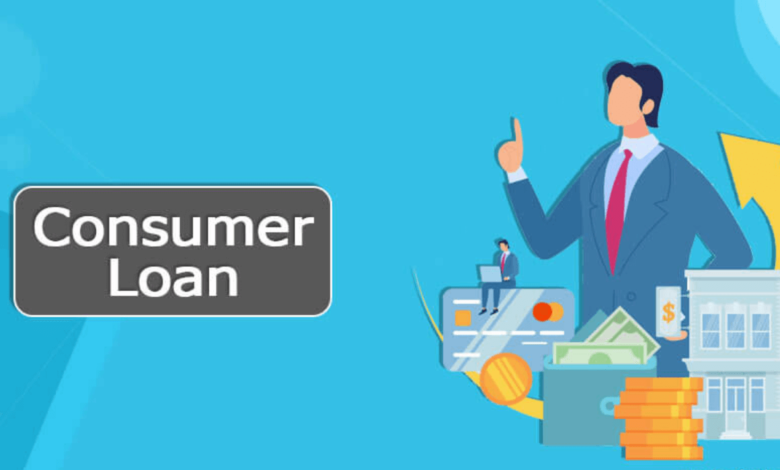
In today’s financial landscape, consumer loans play a pivotal role in helping individuals achieve various financial goals. Whether it’s purchasing a new car, funding a home renovation, or consolidating existing debts, consumer loans offer a lifeline for those in need of financial assistance. This article will provide a comprehensive overview of consumer loan definition, explaining their definition, types, application processes, and much more.
Consumer Loan Definition
Consumer loans, in essence, are financial products that individuals can borrow to meet personal financial needs. These loans are typically unsecured, which means they don’t require collateral such as a house or car. Consumers borrow a specific amount of money from a lender and agree to repay it over a set period with interest. The interest rate and terms of repayment can vary based on the lender and the type of consumer loan.
Types of Consumer Loans
Personal Loans
Personal loans are versatile and can be used for a wide range of purposes, from paying off medical bills to funding a vacation. They are typically unsecured and have fixed interest rates and repayment terms.
Auto Loans
Auto loans are specifically designed for purchasing vehicles. The car itself usually serves as collateral for the loan. These loans can have varying terms and may be obtained from banks, credit unions, or auto dealerships.
Home Loans
These loans are secured by the property itself, and the repayment terms can span several years.
Credit Cards
Credit cards provide a revolving line of credit that consumers can use to make purchases. The balance must be paid off by the due date to avoid interest charges.
How Consumer Loans Work
Consumer loans operate on a straightforward principle. Borrowers request a specific amount from a lender and agree to repay it with interest over time. The lender assesses the borrower’s creditworthiness to determine the interest rate and terms.
Interest Rates and Terms
The interest rate on consumer loans can be fixed or variable, and the terms may range from a few months to several years. The borrower’s credit score often influences the interest rate they receive.
Eligibility and Application Process
To apply for a consumer loan, individuals must meet certain eligibility criteria. This typically includes having a stable source of income, a good credit history, and the ability to repay the loan. The application process involves submitting an application, providing necessary documents, and undergoing a credit check.
The Importance of Credit Score
A good credit score is essential for obtaining favorable terms on consumer loans. Lenders use credit scores to evaluate an applicant’s creditworthiness and determine the interest rate. It’s crucial to maintain a positive credit history to secure better loan offers.
Advantages of Consumer Loans
Consumer loans offer several advantages, including the ability to finance significant expenses, flexible repayment terms, and relatively quick access to funds. They can be instrumental in achieving personal financial goals.
Risks and Considerations
While consumer loans provide financial relief, they also come with risks. Borrowers must be cautious about overextending themselves, as excessive debt can lead to financial strain. High-interest rates can also result in substantial interest payments over time.
Managing Consumer Loan Debt
Effectively managing consumer loan debt is vital to ensure financial stability. Creating a budget, making regular payments, and avoiding late fees can help borrowers maintain control over their finances.
Consumer Loan vs. Business Loan
Consumer loans are tailored for personal needs, while business loans are designed to support business endeavours. Understanding the distinctions is crucial when seeking financing.
Consumer Loan vs. Mortgage Loan
Consumer loans and mortgage loans differ significantly, especially regarding the purpose of borrowing and the collateral involved. Mortgage loans are typically used for real estate purchases.
How to Find the Best Consumer Loan
Comparing loan offers, considering interest rates, and reviewing the terms and conditions are essential steps in finding the best consumer loan.
The Impact of Consumer Loans on Credit
Properly managing consumer loans can positively impact one’s credit score, demonstrating financial responsibility.
Consumer Loan Regulations
Consumer loans are subject to various regulations aimed at protecting borrowers. These regulations differ by location and are designed to ensure fairness and transparency in lending practices. Read more…
Conclusion
In conclusion, consumer loan definition serve as a crucial financial tool for individuals seeking to achieve various personal goals. Understanding the different types of consumer loans, their application processes, and the importance of responsible borrowing is essential. While these loans offer opportunities, borrowers must be diligent in managing their debt to maintain financial well-being.
FAQs (Frequently Asked Questions)
- What is the main difference between a consumer loan and a business loan?
- Consumer loans are designed for personal financial needs, while business loans are intended for business purposes, such as funding a company’s operations or expansion.
- Are consumer loans typically unsecured?
- Yes, consumer loans are often unsecured, meaning they do not require collateral like a house or car.
- How does one’s credit score affect the terms of a consumer loan?
- A higher credit score generally leads to better loan terms, including lower interest rates.
- What are the risks of taking out a consumer loan?
- Risks include overextending oneself and the potential for high-interest payments if the loan is not managed properly.
- What are the key regulations governing consumer loans?
- Regulations governing consumer loans vary by location and aim to ensure fair and transparent lending practices while protecting borrowers.




